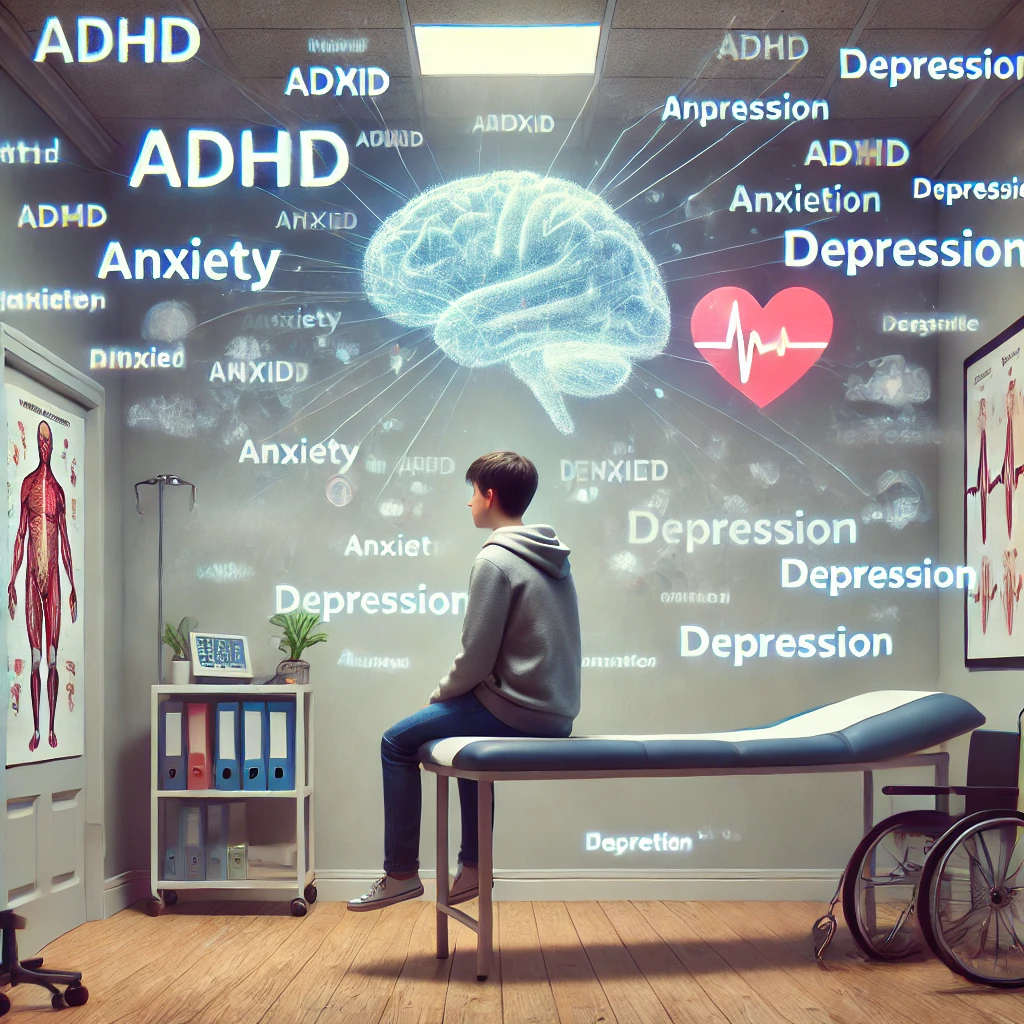Website designed with the B12 website builder. Create your own website today.
Start for free
When a Label Hurts: How Overdiagnosis Is Changing the Way We See Ourselves
We live in a world where mental health is finally getting the attention it deserves. But as awareness grows, so does a quieter, more complex issue: overdiagnosis—the act of labeling people with mental health conditions they might not truly have. While early intervention can be life-changing for many, it’s important to ask: Are we medicalizing everyday human experiences?
What is Overdiagnosis in Mental Health?
Overdiagnosis happens when someone is correctly diagnosed with a condition that likely won’t cause harm or require treatment. In the mental health world, this means behaviors and feelings that fall within the spectrum of “normal” may be misinterpreted as symptoms of psychiatric illness. While these diagnoses are well-intended, they often come with unnecessary medication, stigma, and a shift in how people view themselves.
Real Stories, Real Impact
Stephanie & Abigail’s Story:
Stephanie’s daughter Abigail was diagnosed with a genetic condition she never showed symptoms for. The label brought years of worry and medical appointments, despite Abigail living symptom-free.
Darcie’s Journey:
Darcie was misdiagnosed multiple times due to severe health anxiety. The spiral of incorrect treatments did more harm than good, making her feel trapped by conditions she may not have actually had.
Laura Delano’s Experience:
Diagnosed with bipolar disorder at 13, Laura spent nearly two decades medicated and feeling broken. She later challenged her diagnosis and began reclaiming her identity outside of psychiatric labels.
Why It’s Happening
A few key forces are driving this trend:
• Broader Definitions: Diagnostic manuals have expanded the criteria for many disorders, which can blur the line between illness and ordinary life challenges.
• Pharmaceutical Influence: With more diagnoses come more prescriptions—sometimes incentivized by a system that equates treatment with medication.
• Cultural Shifts: With mental health now in the spotlight, the push for early diagnosis can unintentionally create fear around normal emotions like sadness, shyness, or stress.
The Consequences of Overdiagnosis
• Unnecessary Medication – People may be prescribed drugs they don’t need, which can come with side effects and long-term consequences.
• Emotional Burden – A diagnosis can change how we view ourselves, often making us feel broken or defective.
• Resource Drain – When overdiagnosis leads to overtreatment, those with more severe conditions may find it harder to access the care they need.
What Experts Say
Dr. Suzanne O’Sullivan and Dr. Sami Timimi have voiced concerns about the growing number of mental health diagnoses. They argue that while access to care is vital, we need better discernment—so we don’t treat what’s normal as pathological, especially in children and teens.
What We Can Do About It
1. Prioritize Thoughtful Evaluation – Not every struggle requires a label. Let’s advocate for careful, personalized mental health assessments.
2. Focus on Therapy First – For many people, support, structure, and therapy can be more beneficial than medication.
3. Change the Narrative – Emotions are part of the human experience. It’s okay to feel overwhelmed sometimes without being mentally ill.
4. Support Choice – Everyone should have the power to question, seek second opinions, and pursue non-medical approaches when appropriate.
Final Thoughts
Overdiagnosis doesn’t mean mental health isn’t important—it absolutely is. But when we over-label, we risk turning life’s ups and downs into disorders. Listening to real stories like Abigail’s, Darcie’s, and Laura’s helps us remember that while labels can help, they can also harm.
Let’s move forward with compassion, clarity, and a commitment to recognizing both the real struggles people face and the natural emotional experiences we all share.